FOCUS
Launch of new 5-year PhD Program in Cognitive Science at ENS

The Department of Cognitive Studies (DEC) at Ecole Normale Supérieure, Paris Sciences et Lettres (PSL) is pleased to announce a new PhD program in Cognitive Science. We offer fully funded 5-year scholarships starting in the Fall of 2019.
Unlike most PhD programs in Europe, and at the image of PhD programs in North-America, admission in this program does not require an MA-level degree. The PhD program combines a taught component drawing mainly from our MA program in Cognitive Science with multiple lab rotations.
 Applications are now open.
Deadline: January 31st, 2019 23:59 (Central European Time). More information on the website: https://graduateschool.dec.ens.fr/
Applications are now open.
Deadline: January 31st, 2019 23:59 (Central European Time). More information on the website: https://graduateschool.dec.ens.fr/
The PhD program is funded by French government grant Frontiers in Cognition.
AWARDS AND HONOR
François Recanati has been elected to the au Collège de France
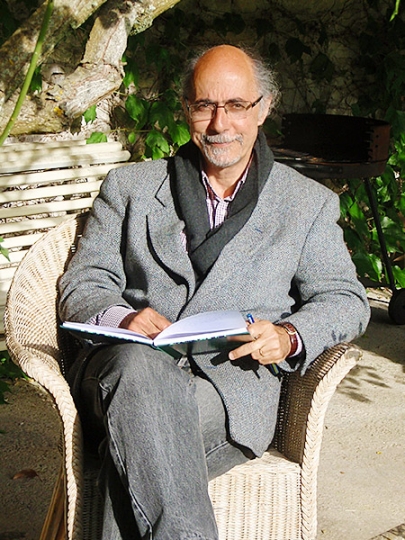
Philosopher of language, research fellow at the CNRS, emeritus director of studies at the Ecole des Hautes Etudes en Sciences Sociales, François Recanati was the director of the Institut Jean Nicod from 2010 to 2017.
François Recanati was elected to the au Collège de France on November 25th 2018. His election represents a crowning achievement in his scientific career.
He will be a Professor at the Collège de France where he will be officially posted as the Chair of Philosophy of Language and Mind, a position that has been newly created for his appointment.
Collège de France website
Read more about François Recanati
PRIZE
Naomi Havron (LSCP), one of the winners of the "Preregistration challenge"
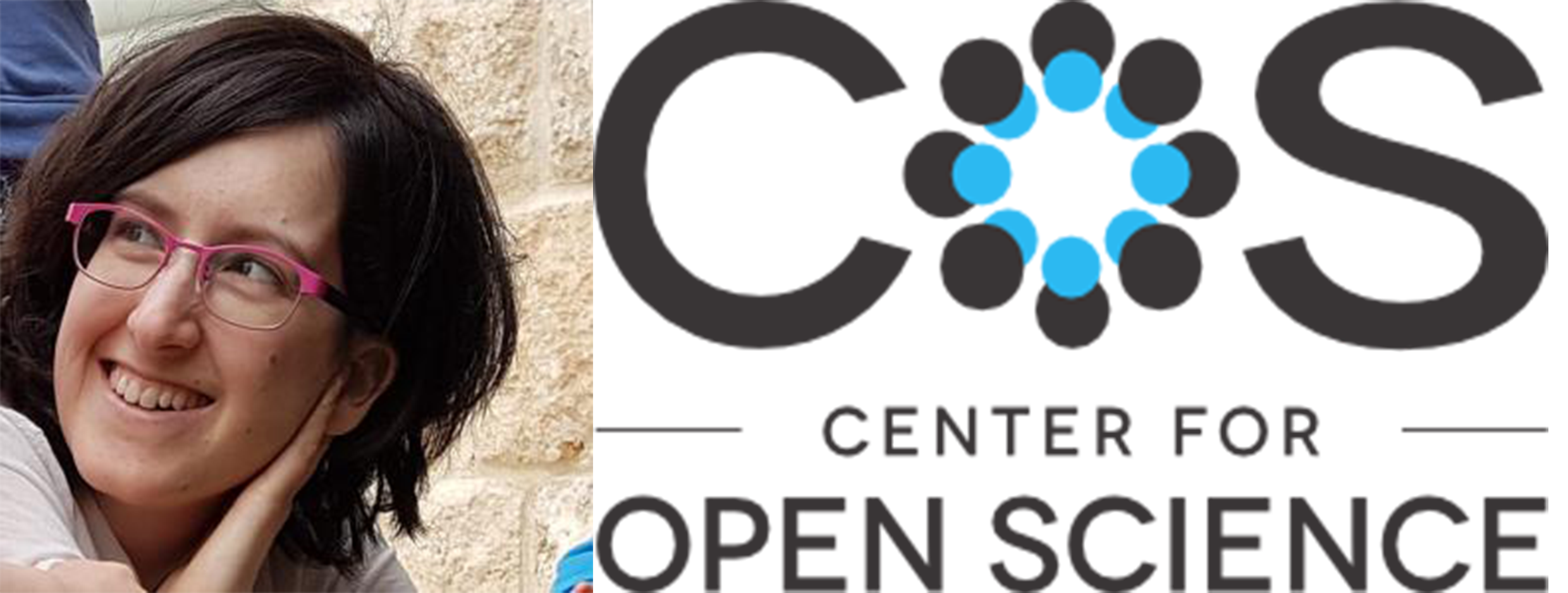
The mission of the Center for Open Science is to increase openness, integrity, and reproductibility of research.
The COS launched the "Preregistration challenge" to encourage preregistration to increase the credibility of research.
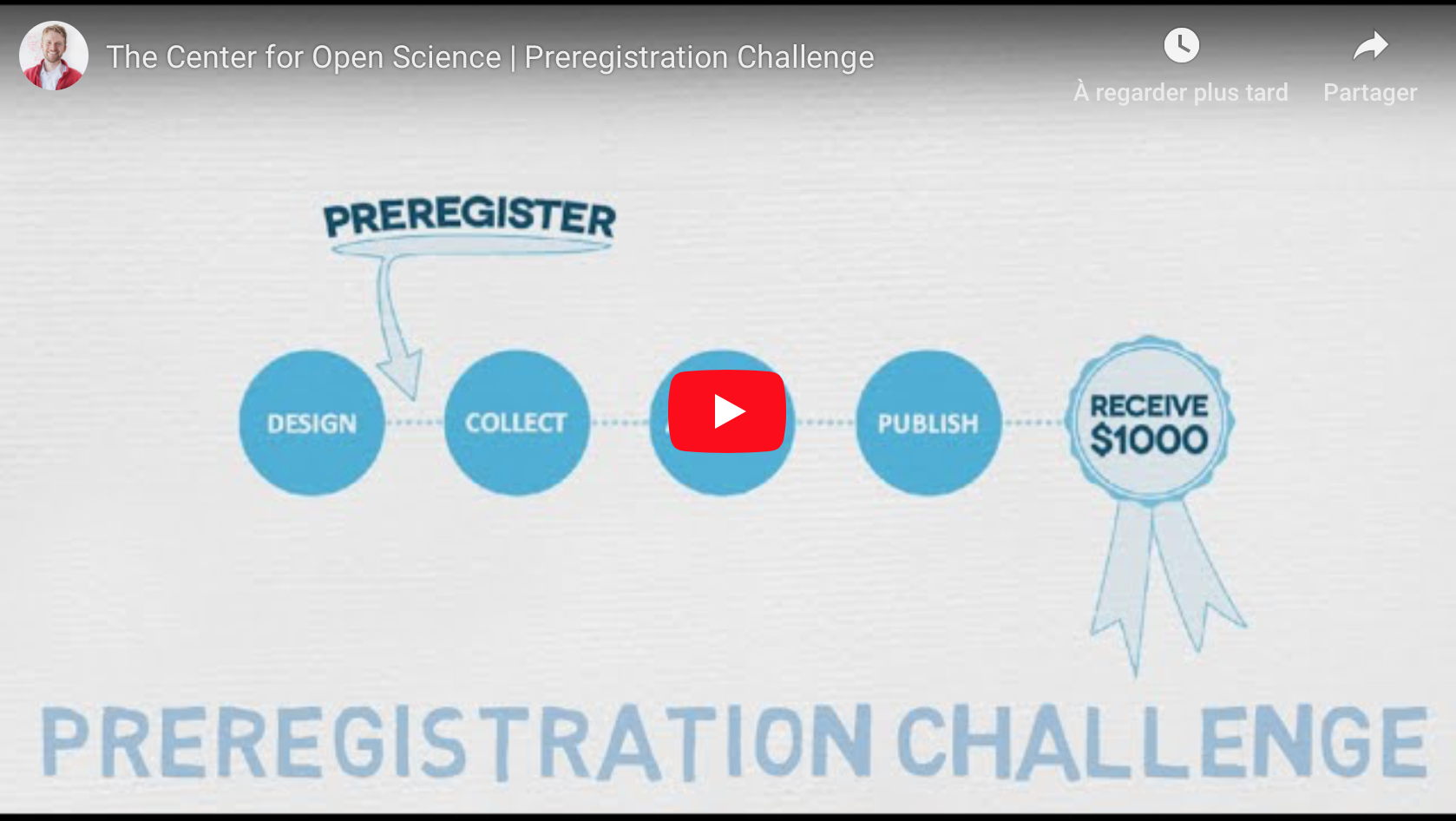 What is preregistration? When you preregister your research, you're simply committing to your plan in advance,
before you gather data. Preregistration separates hypothesis-generating (exploratory) from hypothesis-testing (confirmatory)
research. Both are important, but the same data cannot be used to generate and test a hypothesis, which can happen unintentionally
and reduce the clarity and quality of your results. Removing these potential conflicts through planning improves the quality
and transparency of your research, helping others who may wish to build on it.
What is preregistration? When you preregister your research, you're simply committing to your plan in advance,
before you gather data. Preregistration separates hypothesis-generating (exploratory) from hypothesis-testing (confirmatory)
research. Both are important, but the same data cannot be used to generate and test a hypothesis, which can happen unintentionally
and reduce the clarity and quality of your results. Removing these potential conflicts through planning improves the quality
and transparency of your research, helping others who may wish to build on it.
Why preregister? Makes your science better by increasing the credibility of your results, allows you to stake your claim to your ideas earlier and win a 1 000 $ for publishing the results of your preregistered research.
This year, Naomi Havron, postdoc at the Laboratoire de Sciences Cognitives et Psycholinguistique (LSCP),
is one of the winners of the "Preregistration challenge".
Center for Open Science'website
VIDEOS
Opening speech of the academic year at the University of Trento (Italy) by Roberto Casati
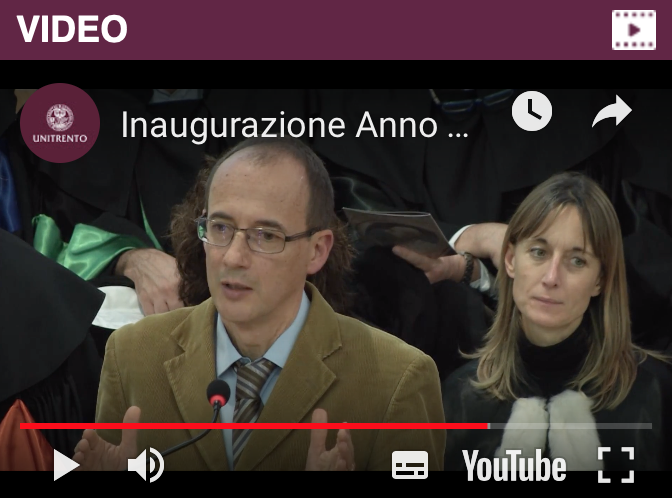
Roberto Casati, director of Institut Jean Nicod,
gave a speech about "Desorientation: Science and Philosophy" for the opening of the academic year of the University of Trento in Italy.
Watch the vidéo
Enlightenment now
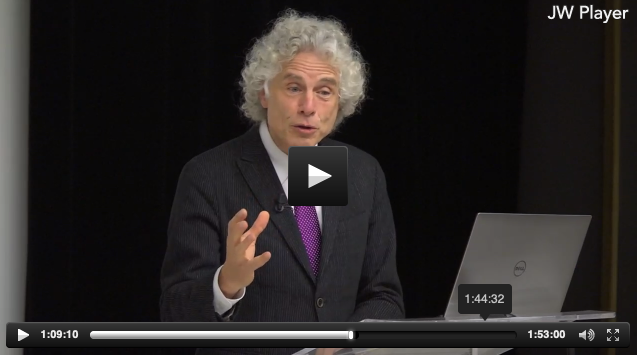
The video recording of the talk given by Steven Pinker
(Département de psychologie, Harvard University) at ENS and organized by Franck Ramus is now acailable on the website of SavoirsENS.
This talk was
organized for the promotion of the French translation of his book "Enlightment now" (Les Arénes ed.).
IN THE MEDIAS
Green number plates to save our planet

The British government had the idea to equip clean vehicles with green number plates.
This is being hailed as the best way to spread good practices by Coralie Chevallier and Nicolas Baumard,
researchers, members of the Evolution & Social Cognition team. Cerveau &Psycho.fr, November 21, 2018.
Read the article.
SOME RECENT PUBLICATIONS
Nicolas Baumard (2018),
Psychological Origins of the Industrial RevolutionBehavioral and Brain Sciences
. Behavioral and Brain Sciences, 1-47.
Abstract:
Since the Industrial Revolution, human societies have experienced high and sustained rates of economic growth.
Recent explanations of this sudden and massive change in economic history have held that modern growth results
from an acceleration of innovation. But it is unclear why the rate of innovation drastically accelerated in
England in the 18th century. An important factor might be the alteration of individual preferences with regard
to innovation due to the unprecedented living standards of the English during that period, for two reasons.
First, recent developments in economic history challenge the standard Malthusian view according to which living
standards were stagnant until the Industrial Revolution. Pre-industrial England enjoyed a level of affluence that
was unprecedented in history. Second, Life History Theory, a branch of evolutionary biology, has demonstrated
that the human brain is designed to respond adaptively to variations in resourcesin the local environment.
In particular, a more favorable environment (high resources, low mortality) triggers the expression of future-oriented
preferences. In this paper, I argue that some of these psychological traits – a lower level of time discounting,
a higher level of optimism, decreased materialistic orientation, and a higher level of trust in others – are likely
to increase the rate of innovation. I review the evidence regarding the impact of affluence on preferences
in contemporary as well as past populations, and conclude that the impact of affluence on neuro-cognitive
systems may partly explain the modern acceleration of technological innovations and the associated economic growth.
Corre C, Noorman S, Jiang J, Palminteri S, Cohen MX, Lebreton M, van Gaal S. (2018)
How the level of reward awareness changes the computational and electrophysiological signatures of reinforcement learning. The Journal of Neuroscience.
Abstract:
The extent to which subjective awareness influences reward processing, and thereby affects future decisions is currently
largely unknown. In the present report, we investigated this question in a reinforcement-learning framework,
combining perceptual masking, computational modeling and electroencephalographic recordings (human male and female
participants). Our results indicate that degrading the visibility of the reward decreased -without completely obliterating-
the ability of participants to learn from outcomes, but concurrently increased their tendency to repeat previous choices.
We dissociated electrophysiological signatures evoked by the reward-based learning processes from those elicited by
the reward-independent repetition of previous choices and showed that these neural activities were significantly
modulated by reward visibility. Overall, this report sheds new light on the neural computations underlying reward-based
learning and decision-making and highlights that awareness is beneficial for the trial-by-trial adjustment of
decision-making strategies.
Giavazzi M, Daland R, Palminteri S, Peperkamp S, Brugières P, Jacquemot C, Schramm C, Cleret de Langavant, Bachoud-Lévi A-C.(2018)
The role of the striatum in linguistic selection: Evidence from Huntington's disease and computational modeling. Cortex,
109, 189-204
Abstract:
Though accumulating evidence indicates that the striatum is recruited during language processing, the specific function of this
subcortical structure in language remains to be elucidated. To answer this question, we used Huntington's disease as a
model of striatal lesion. We investigated the morphological deficit of 30 early Huntington's disease patients with a novel
linguistic task that can be modeled within an explicit theory of linguistic computation. Behavioral results reflected an
impairment in HD patients on the linguistic task. Computational model-based analysis compared the behavioral data to
simulated data from two distinct lesion models, a selection deficit model and a grammatical deficit model. This analysis
revealed that the impairment derives from an increased randomness in the process of selecting between grammatical alternatives,
rather than from a disruption of grammatical knowledge per se. Voxel-based morphometry permitted to correlate this impairment
to dorsal striatal degeneration. We thus show that the striatum holds a role in the selection of linguistic alternatives,
just as in the selection of motor and cognitive programs.
Lefebvre G, Nioche A, Bourgeois-Gironde S, Palminteri S. (2018) Contrasting temporal difference and opportunity cost reinforcement learning in an empirical money-emergence paradigm. PNAS.
Abstract:
Money is a fundamental and ubiquitous institution in modern economies. However, the question of its emergence remains a
central one for economists. The monetary search-theoretic approach studies the conditions under which commodity money
emerges as a solution to override frictions inherent to interindividual exchanges in a decentralized economy. Although
among these conditions, agents’ rationality is classically essential and a prerequisite to any theoretical monetary
equilibrium, human subjects often fail to adopt optimal strategies in tasks implementing a search-theoretic paradigm
when these strategies are speculative, i.e., involve the use of a costly medium of exchange to increase the probability
of subsequent and successful trades. In the present work, we hypothesize that implementing such speculative behaviors
relies on reinforcement learning instead of lifetime utility calculations, as supposed by classical economic theory.
To test this hypothesis, we operationalized the Kiyotaki and Wright paradigm of money emergence in a multistep
exchange task and fitted behavioral data regarding human subjects performing this task with two reinforcement
learning models. Each of them implements a distinct cognitive hypothesis regarding the weight of future or
counterfactual rewards in current decisions. We found that both models outperformed theoretical predictions about
subjects’ behaviors regarding the implementation of speculative strategies and that the latter relies on the degree
of the opportunity costs consideration in the learning process. Speculating about the marketability advantage of
money thus seems to depend on mental simulations of counterfactual events that agents are performing in exchange
situations.
Communiqué de presse
Mell, H., Safra, L., Algan, Y., Baumard, N., & Chevallier, C. (2018). Childhood environmental harshness predicts coordinated health and reproductive strategies: A cross-sectional study of a nationally representative sample from France. Evolution and Human Behavior, 39(1), 1-8.
Abstract:
There is considerable variation in health and reproductive behaviours within and across human populations.
Drawing on principles from Life History Theory, psychosocial acceleration theory predicts that individuals
developing in harsh environments decrease their level of somatic investment and accelerate their reproductive
schedule. Although there is consistent empirical support for this general prediction, most studies have focused
on a few isolated life history traits and few have investigated the way in which individuals apply life strategies
across reproductive and somatic domains to produce coordinated behavioural responses to their environment.
In our study, we thus investigate the impact of childhood environmental harshness on both reproductive strategies
and somatic investment by applying structural equation modeling (SEM) to cross-sectional survey data obtained in
a representative sample of the French population (n = 1015, age: 19–87 years old, both genders). This data
allowed us to demonstrate that (i) inter-individual variation in somatic investment (e.g. effort in looking
after health) and reproductive timing (e.g. age at first birth) can be captured by a latent fast-slow continuum,
and (ii) faster strategies along this continuum are predicted by higher childhood harshness. Overall, our results s
upport the existence of a fast-slow continuum and highlight the relevance of the life history approach for understanding variations in reproductive and health related behaviours.
Palminteri S, Chevallier C. (2018)
Can we infer inter-individual differences in risk-taking from behavioural tasks? Frontiers in Psychology, 9, 2307
Abstract:
Investigating the bases of inter-individual differences in risk-taking is necessary to refine our cognitive and
neural models of decision-making and to ultimately counter risky behaviors in real-life policy settings. However,
recent evidence suggests that behavioral tasks fare poorly compared to standard questionnaires to measure individual
differences in risk-taking. Crucially, using model-based measures of risk taking does not seem to improve reliability.
Here, we put forward two possible – not mutually exclusive – explanations for these results and suggest future avenues
of research to improve the assessment of inter-individual differences in risk-taking by combining repeated online
testing and mechanistic computational models.
Safra, L., Ioannou, C., Amsellem, F., Delorme, R., & Chevallier, C. (2018). Distinct effects of social motivation on face evaluations in adolescents with and without autism. Scientific reports, 8(1), 10648
Abstract:
Individual differences in social motivation have an influence on many behaviours in both clinical and non-clinical populations.
As such, social motivation has been identified as a biological trait that is particularly well-suited for dimensional
approaches cutting across neuropsychological conditions. In the present paper, we tested whether social motivation had
a similar impact in the general population and in a neuropsychological condition characterized by diminished social
motivation: Autism Spectrum Disorders (ASD). More precisely, we evaluated the effect of social motivation on face evaluations
in 20 adolescents with ASD and 20 matched controls using avatars parametrically varying in dominance and trustworthiness.
In line with previous research, we found in the control group that participants with higher levels of social motivation
relied more on perceived trustworthiness when producing likeability judgments. However, this pattern was not found in
the ASD group. Social motivation thus appears to have a different effect in ASD and control populations, which raises
questions about the relevance of subclinical or non-clinical populations to understand ASD.
Philippe Schlenker (2018). Visible Meaning: Sign language and the foundations of semantics, De Gruyter, 44, 3-4, 123-208.
Abstract:
While it is now accepted that sign languages should inform and constrain theories of ‘Universal Grammar’, their role in ‘Universal
Semantics’ has been under-studied. We argue that they have a crucial role to play in the foundations of semantics,
for two reasons. First, in some cases sign languages provide overt evidence on crucial aspects of the Logical Form of
sentences, ones that are only inferred indirectly in spoken language. For instance, sign language ‘loci’ are positions
in signing space that can arguably realize logical variables, and the fact that they are overt makes it possible to
revisit foundational debates about the syntactic reality of variables, about mechanisms of temporal and modal anaphora,
and about the existence of dynamic binding. Another example pertains to mechanisms of ‘context shift’,
which were postulated on the basis of indirect evidence in spoken language, but which are arguably overt
in sign language. Second, along one dimension sign languages are strictly more expressive than spoken
languages because iconic phenomena can be found at their logical core. This applies to loci themselves,
which may simultaneously function as logical variables and as schematic pictures of what they denote
(context shift comes with some iconic requirements as well). As a result, the semantic system of spoken
languages can in some respects be seen as a simplified version of the richer semantics found in sign languages.
Two conclusions could be drawn from this observation. One is that the full extent of Universal Semantics can only
be studied in sign languages. An alternative possibility is that spoken languages have comparable expressive
mechanisms, but only when co-speech gestures are taken into account (as recently argued by Goldin-Meadow and
Brentari). Either way, sign languages have a crucial role to play in investigations of the foundations of semantics.
Communiqué de presse
CALENDAR
DEC calendar available on: cognition.ens.fr
Susbcribe to the newsletter
Unsubscribe from the newsletter
